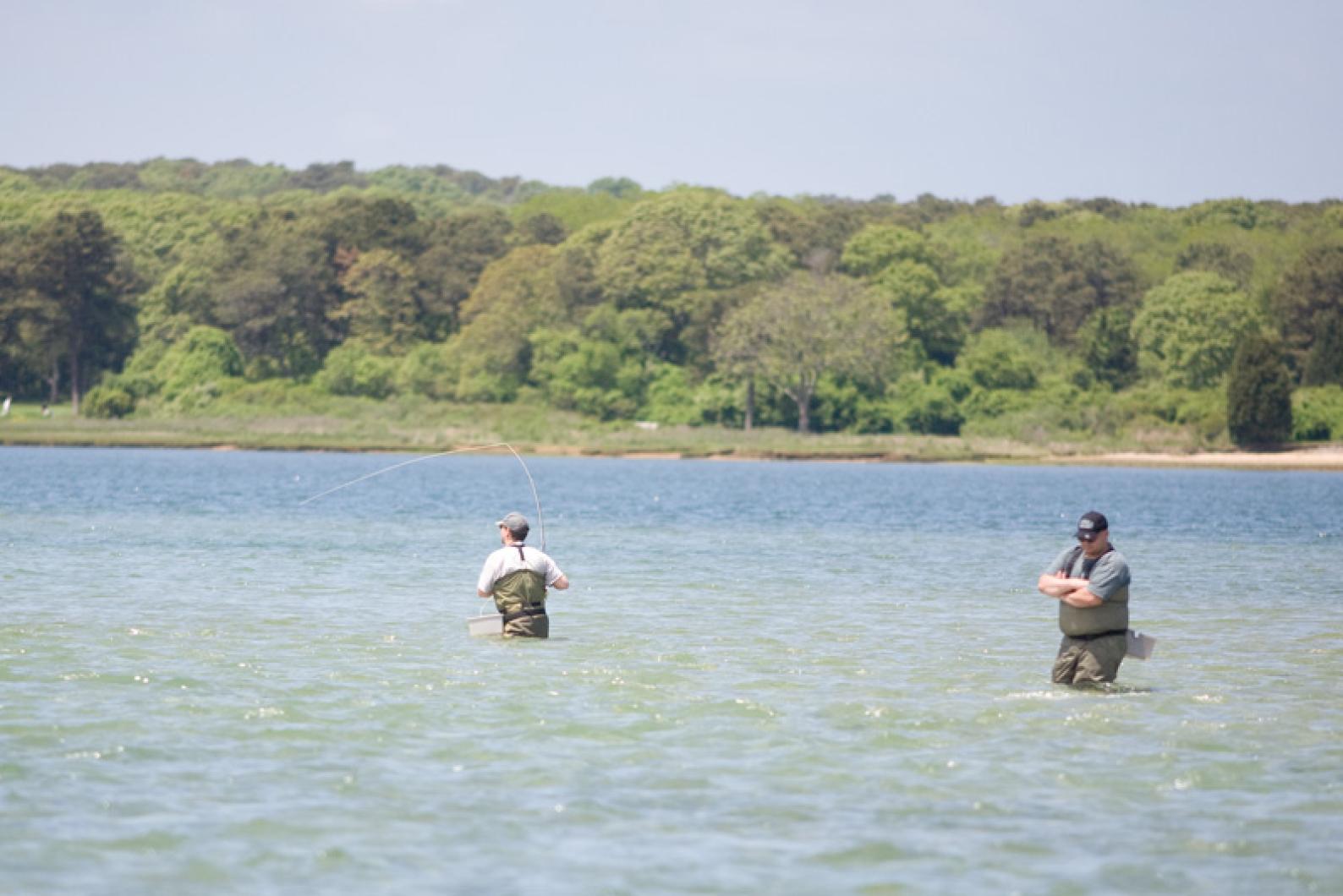The Oak Bluffs conservation commission this week received a waiver from the Massachusetts Environmental Policy Act that is expected to fast-track plans to dredge Sengekontacket Pond. The dredge project is intended to improve tidal circulation and reduce bacteria levels.
Bacteria counts recorded in 2007 by the Division of Marine Fisheries during an annual spot check showed high levels of coliform bacteria, automatically triggering a three-year closure for shellfishing from June though September. This is the third year for the closure.
Meanwhile town officials in Oak Bluffs and Edgartown have been working together to find a way to get the pond reopened to shellfishing in the summer months. A joint committee was created and last year Edgartown completed a dredging project on the southeastern end of the pond.
But dredging a channel from the Big Bridge to the Little Bridge along Joseph Sylvia State Beach is seen as a crucial step for improving circulation in the pond and reducing bacterial levels. Because the project is in a coastal area that includes a barrier beach and calls for removing large amounts of sand from the bottom of the pond, the town is required to go through a lengthy application process, including the need for permits from a daunting number of state and federal regulatory agencies.
But by receiving a waiver for a MEPA review, the town has likely shaved several months from the prolonged application process.
Duncan Ross, chairman of the joint Sengekontacket committee, said the waiver clears the way for dredging to begin in September. The plan calls for taking 57,000 cubic yards of sand from the channel between Big Bridge and Little Bridge, he said, and placing the spoils on town beaches that need renourishment.
At the annual town meeting in April voters agreed to authorize the town to borrow $500,000 for the project. The article was placed on the warrant after a petition drive led by shellfisherman Bill Alwardt.
“Because of the petitioners we can borrow half a million to get this project rolling. At the time I didn’t feel it was right for the selectmen to ask for the money — considering the state of the economy — but I certainly supported the article being placed on the warrant by petition. It put us in good shape to repair a valuable town resource,” Mr. Ross said this week.
He said the $500,000 should cover the cost of the actual dredge portion of the project, although the town may need to secure additional funding to transport the spoils.
Former Edgartown dredge administrator Lynn Fraker said Oak Bluffs still needs a few more state and federal permits, but she too did not anticipate any major hurdles to dredging the channel by fall. Technically, she said, the town has approval to create a new navigational channel in the pond, although the central purpose is to improve tidal circulation.
“We have to call it a navigational channel. So hopefully this navigational channel will lead to cleaner water quality reports from the state and reopening the pond [for shellfishing] by next summer,” Ms. Fraker said.
Edgartown owns a dredge and leases it out to other towns for dredging projects.
Ms. Fraker is no longer coordinating dredge projects because her Edgartown contract, which ran out June 30, was not renewed.
Oak Bluffs shellfish constable Dave Grunden said recent water quality reports by the state Division of Marine Fisheries have been a mixed bag; some have shown a reduction in bacteria levels while others — especially those done in Major’s Cove — have shown an increase.
The source of the bacteria has not been determined precisely.
Mr. Grunden said the Division of Marine Fisheries will continue to test through the summer, and the town is doing additional testing so officials will have more information about the possible source of the bacteria and where it is concentrated. Although he was reluctant to predict whether the dredge will help reopen the pond by next summer, he was confident it would reduce bacteria levels.
“There are only two ways to reduce bacteria levels — you either cut back the pollution entering the pond or you dilute it faster by improving circulation. Identifying the source of pollution and eliminating them will take time, but this dredge is something we can do right away to reduce bacteria in the pond,” Mr. Grunden said.







Comments
Comment policy »